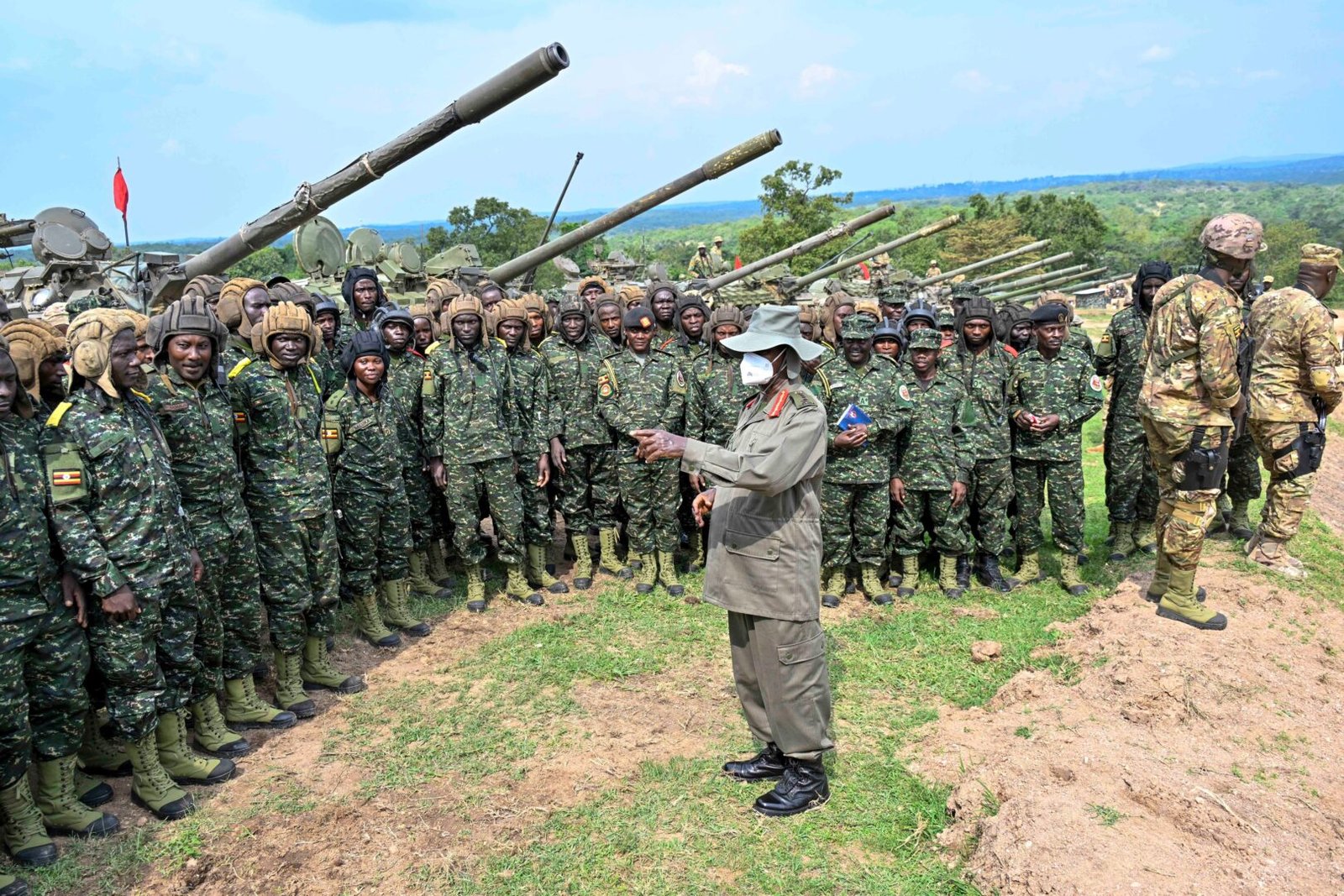KAMPALA, Uganda — A new report co-authored by four Ugandan policy researchers and activists raises significant concerns regarding the escalating role of the military in the country’s political transition, cautioning that Uganda is on the brink of becoming a fully militarized regime.
The report, titled “Guns Everywhere! The Military and Transition Politics in Uganda,” asserts that recent political and legislative developments indicate a steady erosion of civilian authority and the emergence of a parallel military government.
Authored by Godber Tumushabe, City Lawyer Andrew Karamagi, Barnet Musasizi, and Job Kiija, the study traces the evolution of Uganda’s military from the colonial era to the present.
It warns that the Uganda People’s Defence Forces (UPDF), despite being rebranded under the 1995 Constitution, remains loyal to President Yoweri Museveni and his ruling National Resistance Movement (NRM), arguing that it continues to operate as a partisan force with deep historical ties to the NRA that seized power in 1986, rather than transforming into a neutral national army.
Speaking at a pre-launch event in Kampala, Godber Tumushabe highlighted that the report details a series of incidents over the past three years that illustrate the military’s expanding involvement in civilian affairs.
These incidents, he noted, include the deployment of armed forces during the 2025 Kawempe by-election, the abduction of opposition figures, and the storming of Parliament by soldiers to influence legislation.
The passing of the Uganda People’s Defence Forces (Amendment) Act in May 2025 is identified as a critical turning point, as it grants sweeping powers to military courts, allowing them to try civilians despite previous Supreme Court rulings against such practices.
The researchers contend that these developments collectively constitute a “slow-motion coup,” where military influence gradually displaces civilian institutions without a formal overthrow.
They warn that Uganda is already experiencing the worst-case scenario predicted in a 2021 political transition paper, which they then termed the “Warrior-Mad-King” scenario.
This scenario, they explain, is characterized by authoritarian consolidation, extensive militarization of politics, and the rise of a politically powerful military elite.
A primary concern articulated in the report is the growing power of the Special Forces Command (SFC), a unit previously commanded by General Muhoozi Kainerugaba, President Museveni’s son and the current Chief of Defence Forces.
The SFC, described as “an army within an army,” has expanded significantly beyond its original mandate and now plays a central role in strategic national security operations.
While the report acknowledges the UPDF’s contributions to regional peacekeeping and humanitarian efforts, it notes that these endeavors are being overshadowed by its domestic role in suppressing dissent and consolidating power.
The researchers draw parallels between Uganda and countries such as Chad, Togo, and Gabon, where military-backed dynastic rule has taken root.
According to the report, Uganda’s political system is being restructured to favor military dominance. It cautions that unless urgent measures are taken to restore civilian oversight and uphold constitutional governance, the country faces the risk of democratic collapse.
Participants in the dialogue emphasized the necessity of sensitizing Ugandans about peace and security, asserting that the military’s actions on the streets represent law enforcement rather than true peace-building.
Also Read: Museveni signs controversial UPDF Amendment Act into law, allowing military trials for civilians
Retired Major General Mugisha Muntu, former UPDF Chief Defence Forces Commander, urged Ugandans, particularly the elite, to unite for constitutional change within the country.
The full report, which synthesizes findings from a seven-month inquiry into the military’s role across Uganda’s political, economic, religious, and social spheres, is slated for release in August.
It calls for public dialogue on how Uganda can achieve a peaceful political transition ahead of the 2026 elections.
The report was compiled under the auspices of the non-profit organizations Innovations for Democratic Engagement and Action (IDEA) and the Great Lakes Institute for Strategic Studies (GLISS).
